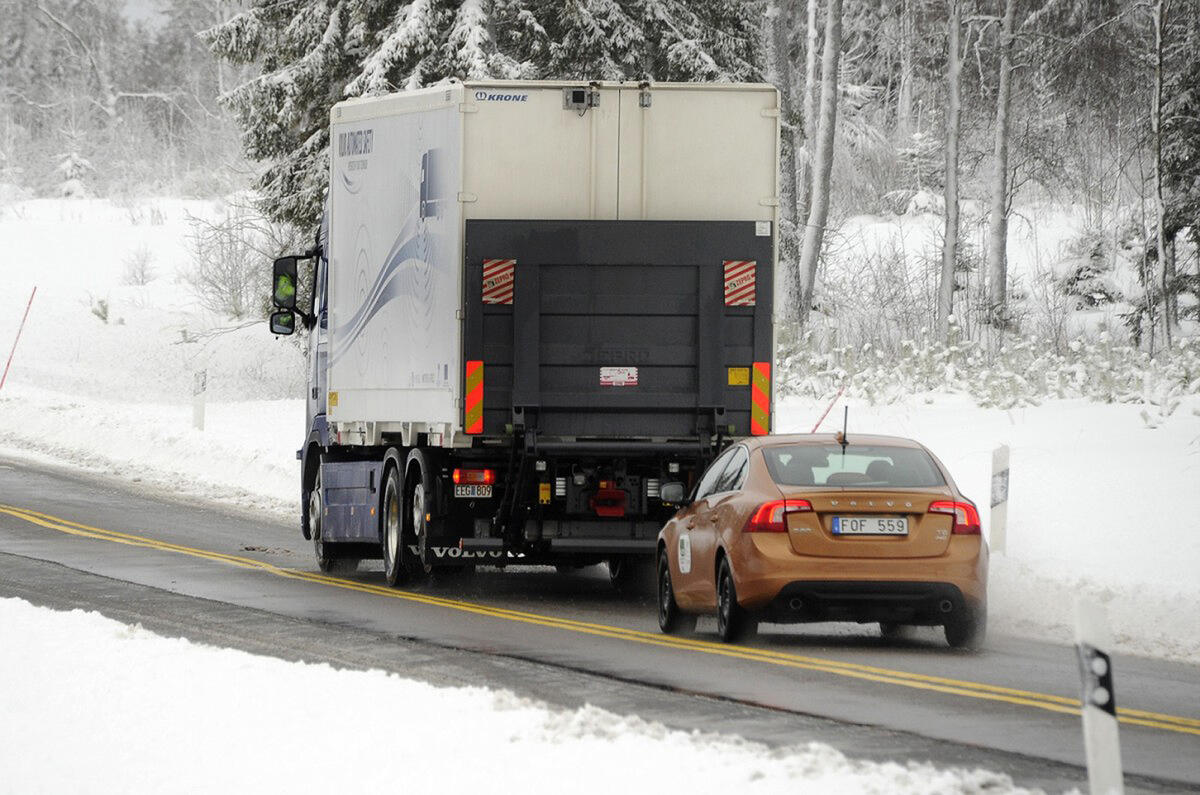Road trains will be a feature on Europe’s roads by the end of the decade, according to Volvo’s senior safety engineer.
Thomas Broberg said closed-road trials had already successfully got two cars attached to a road train and revealed that Volvo will be conducting field trials in Sweden by the end of the year.
Road trains feature a lead vehicle setting a pace on motorways that other cars can communicate with and connect to, leaving the speed and steering to the lead vehicle. Small fees are likely to be paid to the lead vehicle, said Broberg.
“Road trains allow a driver to use their time better, drive safer, reduce congestion and improve the environment,” he said. “You’re always following another car, so why not let the driving be done by someone else?”
Read more on road train technology
Broberg believes road trains are a step towards fully autonomous cars, technology that Volvo is also researching. “I believe they will happen,” he said. “From a technological point of view it’s challenging, but possible.”
He conceded there were legal and social issues surrounding road trains and autonomous vehicles, but added: “Until you try it, you cannot grasp these issues.”
Volvo has also set a target of no one dying in its cars by 2020, but concedes it needs to “understand the mechanisms about how people think” before this goal is realised. Safety chief Thomas Broberg added if Volvo could understand how people thought in the split seconds before a crash, it could take potential accident situations from the critical to the non-critical.
Geely’s purchase of Volvo could also have big implications for crash safety. Due to Volvo’s modest sales volumes, it takes six years to receive and digest crash statistics from its cars. But Geely’s plans to raise production levels will allow it to receive more data in a shorter time, in turn speeding up its crash safety development.
Mark Tisshaw








Add your comment